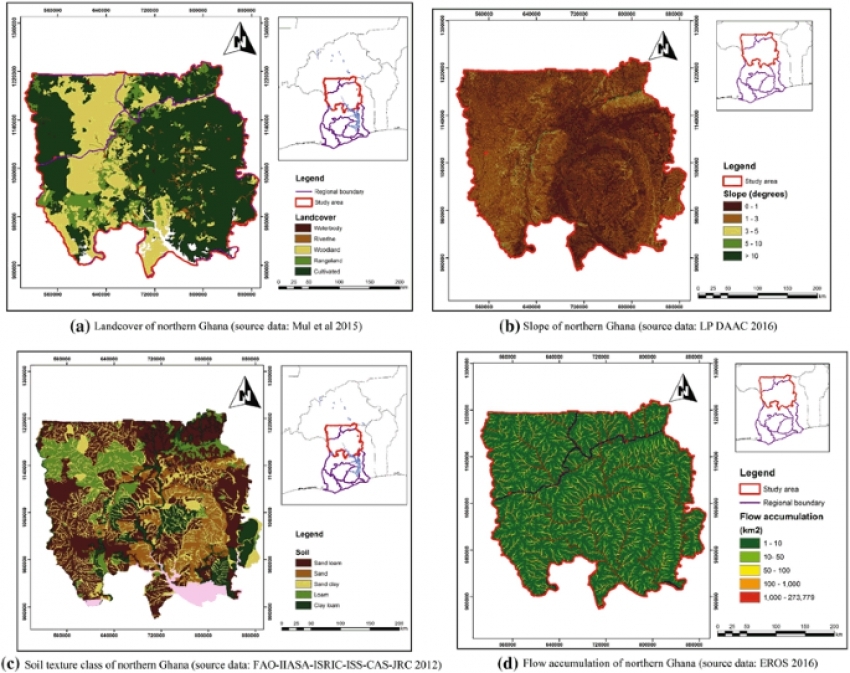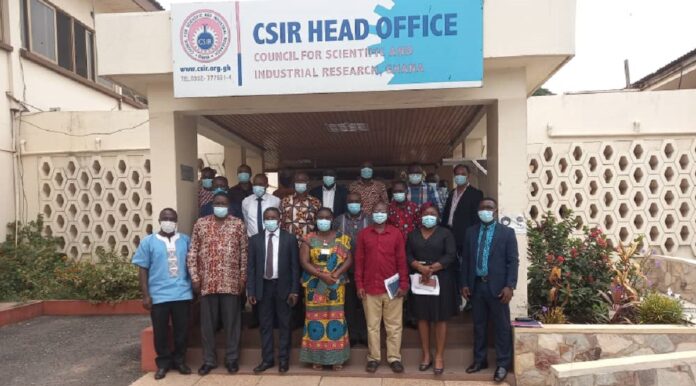Good news. Agriculture just got a big boost with the launch of the comprehensive Digitized Soil Maps of Ghana.
Let us help you appreciate this achievement of Digitized Soil Maps. Before now, if you wanted to know the fertility or suitability of any soil in Ghana, you had to travel to the location and examine it. Sometimes you are required to carry some to the experts at the soil labs. Soil maps though existed but on piles of papers on shelves. Accessing them was an inconvenience.
This time at your own comfort, a click of a button and just a little navigation, you can see the soil information for any location in Ghana.

This is the full report on the lunch by CSIR-SRI.
The Council for Scientific and Industrial Research (CSIR) Soil Research Institute (SRI) converts all its analogue soil maps of Ghana from analogue formats to a digitized platform to support the development of a Digital Agricultural Innovation Hub (DAIH). This is to help accelerate agricultural innovation and facilitate access to agricultural technologies. The soil maps in Ghana can now be accessed on csirsoilinfo.org .
The “Digitized Soil Maps” platform developed by The Council for Scientific and Industrial Research, Soil Research Institute (CSIR-SRI) in collaboration with the Modernising Agriculture in Ghana (MAG) project has been unveiled at a workshop in Accra.
Addressing participants at the workshop, Professor Paul Bosu, the Deputy Director-General, said: “adequate knowledge and soil type information is crucial for sustainable agriculture and let me quickly add that it is not only about agriculture but also a myriad of other uses which time would not permit me to go into”.
He added, “The CSIR-Soil Research Institute (CSIR –SRI) has and continues to work with partners to improve upon available data for better understanding of Ghana’s soils for all the good reasons”.
“Distinguished ladies and gentlemen, by converting the soil maps of Ghana from analogue to digital formats, and making same available online, we in CSIR believe that we are on course towards helping MOFA build a more modern agricultural system for Ghana”, Prof. Bosu said.
For his part, Prof. Mohammed Moro Buri, the Director of CSIR-SRI, said that the Institute had developed analogue maps but that did not allow them to load the maps with much information as such, he said:” thankfully under MAG, we have been given the chance to convert all these maps into digital information such that, accessibility and availability are enhanced”.
Explaining the rationale for digitizing the soil maps, he said “first of all we have several government programmes in agriculture namely Planting for Food and Jobs (PFJ), Rearing for Food and Jobs (RFJ), Planting for Export and Rural Development (PERD), One District One Factory (1D1F) and what have you. All these programmes mainly depend on soil information such that, they can succeed”.
Mr. Eric Asamoah, a Principal Technologist at the CSIR-SRI, who took the participants through the ‘Digitized Soil Maps’ in a presentation, said “In Kumasi, where there are fertile lands, most people build on the fertile lands, so knowledge on information on soil fertility and also mapping their spatial distribution placed a crucial role in deciding soil effective management practices”.
He added, “Therefore the soil information is fundamental to successful farming crop and fertilization coming up with information of new blends hence, the need for the Institute to establish a web-based interactive platform for easy accessibility to soil information”.
In her response, Ms Ruby Neils-Palme, the MAG Programme Coordinator for the Ministry of Food and Agriculture (MoFA), congratulated the CSIR-SRI for coming up with such an initiative to help people have easy access to soil information.
She urged the developers to consider ways of improving and sustaining the online platform to suit the needs of farmers who will be potential users.
MAG is a five-year Canadian initiative to provide financial support and technical assistance in response to the objectives of food and agricultural sector development policies and value chain management issues for increased farmer incomes and enhanced rural livelihoods.
The project focuses on demand-driven research and different methods of extension delivery that facilitate the dissemination of technologies to farm households, farmer-based organisations, and out-growers of nucleus farms.
Recently, CSIR- Institute of Scientific and Technological Information (CSIR-INSTI) launched four digital applications: (i) The Agric. Research Management Repository, (ii) CSIR Technologies, (iii) CSIR Agritech, and (iv) Kuafo Market Place (available at csirgh.com)


